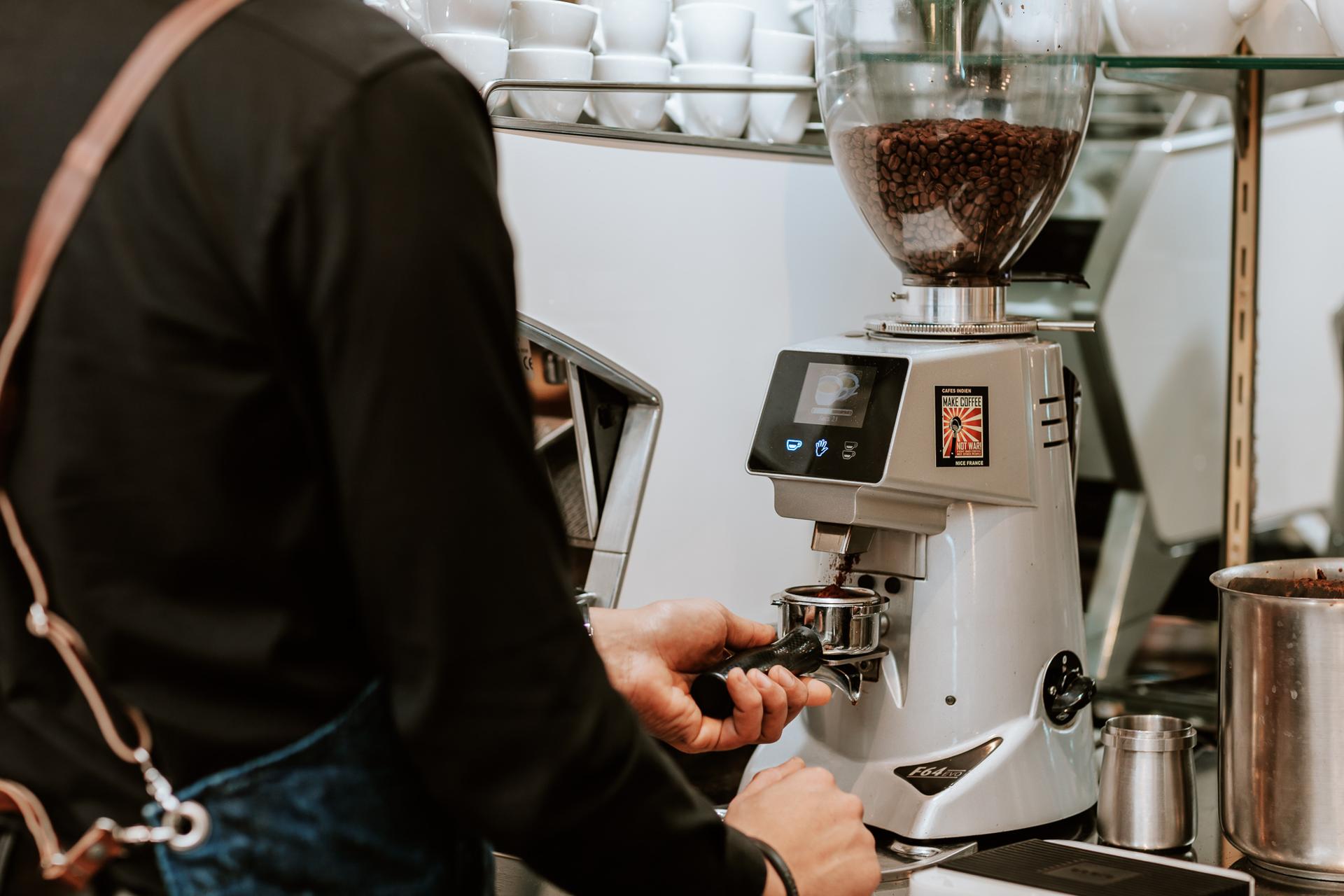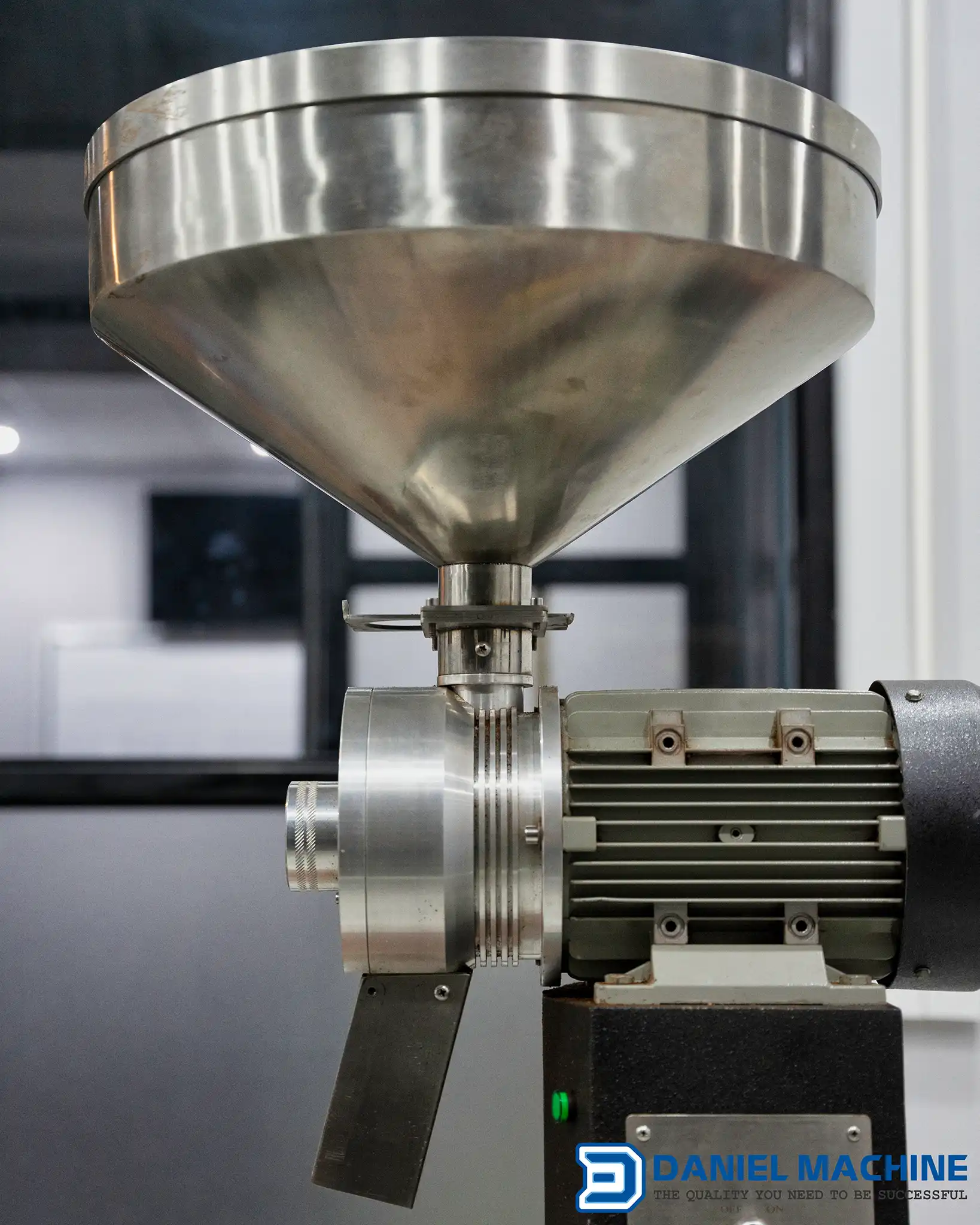Industrial Coffee Grinder: Important for Coffee Houses and Coffee Bars
Industrial Coffee Grinder Overview: Boost Effectiveness and Top Quality
In the competitive landscape of coffee manufacturing, selecting the best commercial coffee grinder plays an essential role in improving both performance and product high quality. Recognizing the nuances of different mill types and crucial functions-- such as personalized grind settings and robust building and construction-- can significantly affect the final taste profile of the coffee. The optimization of the grinding process, paired with diligent maintenance, is essential for sustaining performance over time. As we discover these essential aspects, it ends up being obvious that the effects prolong past mere devices choice, impacting general service success in means that necessitate closer evaluation.
Comprehending Grinder Kinds
When picking a commercial coffee grinder, recognizing the different kinds offered is essential for maximizing both flavor removal and operational performance. The two key types of mills are blade grinders and burr mills.

Ultimately, choosing the appropriate type of mill is integral to preserving top quality and efficiency in coffee manufacturing, making it crucial for businesses to purchase high-grade burr grinders for optimal outcomes.
Trick Attributes to Consider
Choosing a commercial coffee mill requires careful consideration of numerous vital features that can substantially affect both efficiency and the total coffee experience. One of the primary elements to examine is the grinding device. Burr mills are generally chosen over blade grinders, as they supply a constant work dimension, which is essential for ideal removal and taste.
Another important function is the mill's capacity. Depending upon the volume of coffee you require to procedure, choose a model that can handle your requirements without sacrificing speed or quality. Additionally, think about the grind settings offered. A versatile grinder with several settings allows you to tailor the work dimension to various brewing techniques, boosting the coffee's flavor profile.
The building and construction material additionally contributes in durability and maintenance. Stainless-steel components often supply long life and are less complicated to clean up, which is essential for maintaining health requirements. Lastly, evaluate the grinder's noise degree, particularly in an active coffee shop or manufacturing atmosphere, where excessive sound can be disruptive. Purchasing a grinder that stabilizes these features can considerably boost both operational efficiency and the high quality of the coffee offered.
Optimizing Grinding Refine
To achieve the best results in coffee preparation, maximizing the grinding process is necessary. The grind size dramatically affects extraction, taste, and overall quality of the brewed coffee. Different brewing methods need specific work dimensions; for example, espresso requires a fine work, while French press necessitates a crude texture. Recognizing the connection between work dimension and brewing method is the primary step in optimization.


Additionally, monitoring the grinding speed can optimize the procedure. Slower grinding usually produces much less warmth, protecting delicate tastes and fragrances. Alternatively, quicker grinding may generate extreme warm, negatively impacting the coffee's top quality.
Upkeep and Treatment Tips
Appropriate maintenance and care of industrial coffee grinders are important for making sure ideal performance and longevity. Normal cleaning is the structure of upkeep; deposit buildup can influence flavor and grinding performance. It is suggested to clean the mill after each usage, cleaning down the exterior and getting rid of any kind of coffee premises from the burrs.
Additionally, examine the grinding burrs for wear and tear. Dull burrs can endanger work uniformity, so they must be replaced as necessary. Industrial Coffee Grinder. Periodically adjusting the mill is additionally essential, as this preserves the wanted work size for different brewing techniques
Lubrication of moving parts must be done according to the supplier's specifications, as this minimizes rubbing and prolongs the life of the devices. It is necessary to make use of food-grade lubricants to make certain safety you can check here and security and conformity with wellness guidelines.
Lastly, maintain the mill in a completely dry and secure environment to avoid corrosion and corrosion. By sticking to these upkeep and treatment ideas, operators can boost the effectiveness of their commercial coffee grinders while guaranteeing top quality result and prolonged functional life.
Return on Investment Analysis
Reviewing the return on financial investment (ROI) for commercial coffee mills is critical for businesses looking for to maximize their coffee manufacturing abilities. An extensive ROI evaluation aids identify the monetary stability of investing in high-quality mills, enabling organizations to consider the first expenses against prospective gains.
Assess the purchase rate of the grinder, consisting of installment and any essential alterations to existing infrastructure. High-performance grinders typically lead to lowered grinding time and raised throughput, which can dramatically improve productivity.
Additionally, consider the influence on item quality. Industrial Coffee Grinder. Superior mills yield an even more constant grind size, which can enhance taste accounts and customer complete satisfaction, eventually driving sales. By raising the quality of the end product, companies can validate higher pricing, resulting in increased revenue
Final Thought
In summary, an industrial coffee mill plays a crucial function in enhancing both efficiency and product quality within coffee manufacturing. Inevitably, the strategic investment in a dependable grinder adds dramatically to boosted profits and competitiveness in the coffee market.
In the competitive landscape of coffee manufacturing, picking the ideal industrial coffee grinder plays a crucial duty Clicking Here in improving his response both effectiveness and product top quality. The 2 main types of mills are blade grinders and burr grinders. Within the burr mill classification, there are flat burr mills and cone-shaped burr grinders, each with its benefits. Burr grinders are generally favored over blade grinders, as they provide a regular grind size, which is important for optimal extraction and flavor.
In recap, an industrial coffee mill plays an essential function in boosting both effectiveness and product quality within coffee production.